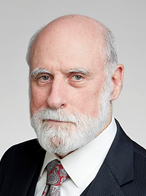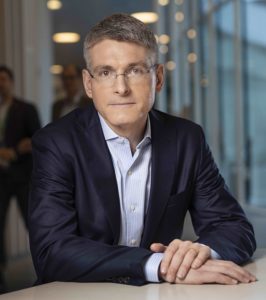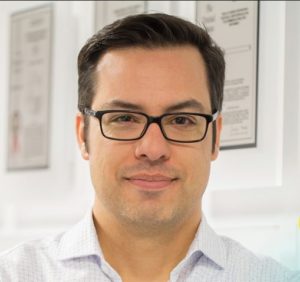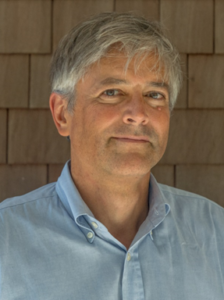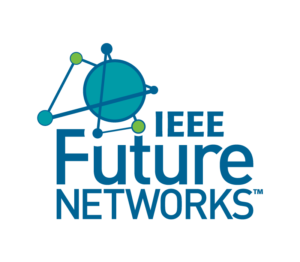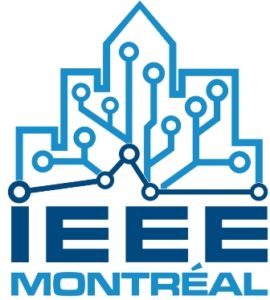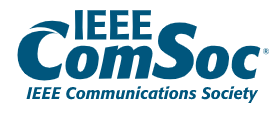Day 1 Keynote Recording:
Day 2 Keynote Recording:
Day 3 Keynote Recording:
“Internet Challenges in the 2020s”
Abstract: The Internet’s original design was done nearly 50 years ago. Its implementation has evolved as has the popular WWW and its applications. New protocols have emerged such as QUIC. Security has become a center-stage focus, especially for core functionality including BGP, RPKI, 2FA, HTTPS. Fragmentation threatens as potentially incompatible national policies on the Internet arise. The amplifying power of social media, coupled with uncritical acceptance of unverified information has created its own policy challenges. Accountability and agency are needed to counter these trends. New technologies including Machine Learning create their own concerns for validity. Any way you look at it, the Internet is still as dynamic as ever.
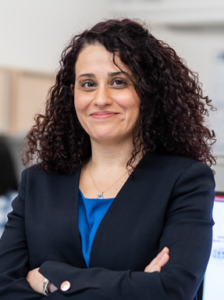 Melike Erol-Kantarci, Ericsson and University of Ottawa
Melike Erol-Kantarci, Ericsson and University of Ottawa
“Deep and Reinforcement Learning in 5G and 6G”
Abstract: The next generation of wireless networks, also known as Beyond 5G and 6G, will need a very high level of automation. This is both because of the increased complexity, and also thanks to the availability of more data, advanced Machine Learning (ML) algorithms and strong processing capabilities. When it comes to automation of networks, intelligent control algorithms that allow turning the knobs and optimizing system parameters become essential. Reinforcement learning and deep reinforcement learning algorithms have shown great success in other areas in AI and ML. In this talk, we will provide an overview of the state-of-art in reinforcement and deep reinforcement learning algorithms and their applications to wireless networks, in addition to their challenges and the open issues in terms of their applicability to various functions of the next-generation wireless networks.
Bio: Melike Erol-Kantarci is Chief Cloud RAN AI\ML Data Scientist at Ericsson and Canada Research Chair in AI-enabled Next-Generation Wireless Networks and Associate Professor at the School of Electrical Engineering and Computer Science at the University of Ottawa. She is the founding director of the Networked Systems and Communications Research (NETCORE) laboratory. She is also a Faculty Affiliate at the Vector Institute, Toronto. She has over 180 peer-reviewed publications which have been cited over 6700 times and she has an h-index of 41. She has received numerous awards and recognitions, and has delivered 70+ keynotes, tutorials and panels around the globe and has acted as the general chair and technical program chair for many international conferences and workshops. Her main research interests are AI-enabled wireless networks, 5G and 6G wireless communications, smart grid and Internet of things. She is an IEEE ComSoc Distinguished Lecturer, IEEE Senior member and ACM Senior Member.
“6G – the next step for the greatest innovation platform ever”
Abstract: Incredibly, today’s networks have formed an intelligent digital infrastructure offering endless possibilities to individuals, enterprises, and governments worldwide. The rollout of 5G will enable robust new solutions for a wide range of social, environmental, and economic challenges. We are already on the way towards the next paradigm shift formed by a combination of emerging technology trends. That paradigm shift will take us to the 6G era which will give rise to challenges beyond what even 5G can meet. The increasing expectations set a clear target for us in the industry and research community — 6G should contribute to an efficient, human-friendly, sustainable society through ever-present intelligent communication. This presentation will outline Ericsson’s vision where 6G will enable a cyber-physical continuum blending the physical real world of sensing, action and experience with a programmable digital representation of that same world, and call on the audience to engage in the shaping of the future network platform.
Bio: As Group CTO and head of Technology and Strategy, Erik Ekudden is responsible for setting the overall strategy and direction of technology leadership for Ericsson. In 2017 he re-located to Kista, Sweden, after nearly seven-years in Santa Clara, California. His focus for the group is on strategic decisions and investments in mobility, cloud, artificial intelligence and Internet of things. This builds on his decades-long career in technology strategies and industry activities with leading customers and partners from 2G to 5G and beyond. Ekudden first joined Ericsson in 1993 working on mobile systems, but rapidly moved into leadership within research and technology. He has served as research area director and vice president of technology strategy, standardization and industry. He holds a Master of Science degree in Electrical Engineering from the Royal Institute of Technology in Stockholm, Sweden. He is a member of the Royal Swedish Academy of Engineering Sciences (IVA).
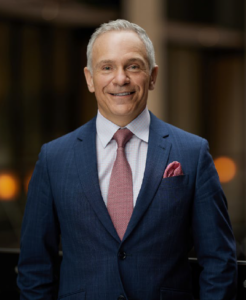 Stéphane Paquet, Montréal International
Stéphane Paquet, Montréal International
“Greater Montréal’s solid expertise to build the next 6G”
Bio: Stéphane Paquet is President and CEO of Montréal International, the economic development agency tasked with attracting foreign direct investment, international organizations, foreign talent, and international students to Greater Montréal. He has held the position since January 2020.
Mr. Paquet joined Montréal International in 2015 as Vice-President, Investment Greater Montréal. While in that role, he led a team of professionals dedicated to assisting foreign companies locating in Montréal. In 2017, as his role expanded to include attracting and retaining international organizations, he stepped into the newly created position of Vice-President, Foreign Investments and International Organizations.
Under his leadership, the inflow of foreign investment facilitated by Montréal International has tripled—almost quadrupled. What’s more, in 2020, the agency won two international awards: “Best Economic Development Agency,” from the International Economic Development Council, and “Top Investment Promotion Agency,” from fDi Intelligence, a division of The Financial Times Ltd.
“5G Networks and ORAN”
Abstract: We need to do it right. A service provider’s perspective on technology evolution and the key tenets to successful implementations. The reality of 5G was catching up on 4G features. TELUS believes that every “G” should be transformational in nature and that 5G is where fixed and mobile convergence will truly happen. The investment in IP Networks and Telco Cloud should be the underlying infrastructure for 5G and the enabler of that convergence but the challenges of network function virtualization implementations and closed ecosystems are slowing down innovation and performance. Our presentation will capture some of the salient points.
Bio: As Senior Vice President of Network Build and Operate, Nazim leads the team driving TELUS’ network leadership and its wireline and wireless infrastructure, enabling the very best in next-generation customer service. Nazim joined TELUS in 2000, and has worked across different services and technologies, including IP/MPLS, legacy voice, wireless, advanced networking IT, Cloud infrastructure and most recently, leading the TELUS core network infrastructure. Nazim holds a Bachelor of Science in Electrical Engineering from the University of Montréal (Polytechnique Montréal) and a Master of Business Administration from HEC Montréal. He lives in Montreal with his wife and their twin girls. Both Nazim and his wife are deeply entrenched in the community, with a commitment to resonate TELUS’ social purpose; whether it is by supporting new immigrants adjust to the Canadian workplace through MOSAIC, TELUS’ multicultural support group, or getting dunk-tanked and a pie in the face to raise funds for the TELUS Days of Giving.
“5G Challenges and Opportunities in Developing Countries and Implications for Sustainable Development Goals”
Abstract: While 5G trials and commercial deployments have taken off globally, particularly in higher-income countries, there remains significant barriers to both infrastructure deployment and adoption in emerging markets and developing countries. This session will provide a snapshot of 5G deployment thus far in emerging markets and developing countries, highlight some key challenges in these regions, and explore how the deployment of 5G is likely to impact the digital divide between countries and within countries, considering the high cost of infrastructure, 5G-enabled devices, and data. The oft-cited sectoral opportunities of 5G networks and integration with Industry 4.0 technologies will also be discussed within the context of the UN Sustainable Development Goals and development finance. The session will conclude with remarks on what governments in developing countries can do now to start strategically preparing for 5G and future generations of mobile connectivity.
Bio: Rami Amin leads several initiatives at The World Bank and in collaboration with the IFC, developing insight to inform clients and Bank-financed operations on how to accelerate digital transformation, investment, and economic growth. His work focuses on 5G Networks, AI Policy and Governance, cloud infrastructure and services, e-government, national policy/strategy roadmaps for digital transformation, and designing innovative financing solutions to drive technology adoption in emerging markets. He is a lead author of the World Bank’s upcoming flagship report on 5G in Emerging Markets, as well as the World Bank’s reports on Harnessing AI for Development, Government Cloud Migration Strategies, and Cybersecurity Risks in Developing Countries. He also manages the Bank’s thought leadership series on Digital Development, co-leads the World Bank’s Secretariat for Mainstreaming Digital and Disruptive Technologies, and was appointed the World Bank Group’s IEG MAR focal point on Mobilizing Technology for Development.
Outside of the Bank he participates in various multi-lateral working groups bringing together leads from UN-based organizations to collaborate on AI and Data Governance. Prior to joining The World Bank he coordinated Oxford University’s leading center for interdisciplinary collaboration, providing early-stage funding for projects considered to be radically innovative with high-impact potential. Prior to this he worked for the ECIR Cyber Initiative at MIT, the Shorenstein Center at Harvard, and was also a Google Public Policy Fellow focusing on trade barriers in the digital economy. Rami was awarded a PhD / DPhil from Oxford, an MPP from Harvard, and was a policy and international affairs fellow at Princeton.
“5G Done Right”
Abstract: The telecom industry needs to attain an unprecedented level of operational excellence to support reliable and performant applications over 5G. At all times, ultra-low latency, high UL/DL throughput and constant connectivity are de-facto critical requirements. Enterprise customers delivering new applications over 5G depend directly on network performance to achieve their objectives. Service assurance is essential to deliver reliable and performant 5G networks for vertical markets. The keynote speaker, Sylvain Nadeau, currently leads a specialized team at EXFO carrying out exploratory work in 5G assurance and applied research in Machine Learning.
Bio: Nadeau is Manager of Edge Innovation for EXFO and has more than 20 years of experience in telecommunications industry. He joined EXFO in 2007 and has helped lead the technological evolution of EXFO products and the introduction of innovations. He currently leads a team carrying out exploratory work in 5G networks and cloud native technologies as well as applied research in Machine Learning. Mr. Nadeau was named Distinguished Member of Technical Staff in 2018 for his leadership and continued contribution to innovation at EXFO. His expertise in telecommunication technologies, combined with an outstanding track record in innovation, makes him a strong leader within the CTO organization of EXFO. Before joining EXFO, Mr. Nadeau held engineering roles at Microsemi (formerly PMC-Sierra) and Matrox Graphics. Mr. Nadeau holds a bachelor’s degree in Electrical Engineering from Polytechnique Montreal and a master’s degree of Engineering from Sherbrooke University.
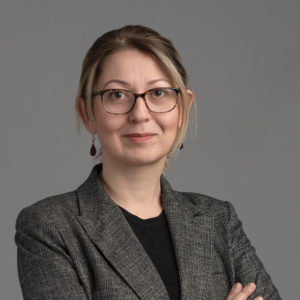 Gunes Kurt, Polytechnique Montreal, STARaCom
Gunes Kurt, Polytechnique Montreal, STARaCom
“Communications and Networking in LEO Mega-Constellations”
Abstract: The emerging low Earth orbit (LEO) mega-constellation networks, planned to be composed of thousands of satellites, have the potential to connect all through their global footprint and bridge the long-existing digital divide. This talk will focus on the communications and networking aspects of these mega-constellations and their integration with the terrestrial networks. The associated communication and networking problems will be investigated along with potential remedies such as the use of distributed massive MIMO and high altitude platform station (HAPS) systems. The talk will conclude with an overview of the open issues and future research directions.
Bio: Gunes Karabulut Kurt received the B.S. degree with high honors in electronics and electrical engineering from Bogazici University, Istanbul, Turkey, in 2000 and the M.A.Sc. and the Ph.D. degrees in electrical engineering from the University of Ottawa, ON, Canada, in 2002 and 2006, respectively. From 2000 to 2005, she was a Research Assistant with the CASP Group, University of Ottawa. Between 2005 and 2006, she was with TenXc Wireless, Canada. From 2006 to 2008, Gunes was with Edgewater Computer Systems Inc., Canada. From 2008 to 2010, she was with Turkcell Research and Development Applied Research and Technology, Istanbul. Between 2010 and 2021, she was with Istanbul Technical University. She is currently an Associate Professor of Electrical Engineering at Polytechnique Montréal, Montréal, QC, Canada. She is a Marie Curie Fellow and has received the Turkish Academy of Sciences Outstanding Young Scientist (TÜBA-GEBIP) Award in 2019. In addition, she is an adjunct research professor at Carleton University. She is currently serving as an associate technical editor of the IEEE Communications Magazine, an associate editor of IEEE Communication Letters, an associate editor of IEEE Wireless Communications Letters, and an area editor of IEEE Transactions on Machine Learning in Communications and Networking. She is a member of the IEEE WCNC Steering Board. She is also the chair of the IEEE special interest group entitled “Satellite Mega-constellations: Communications and Networking” and a Distinguished Lecturer of Vehicular Technology Society Class of 2022.
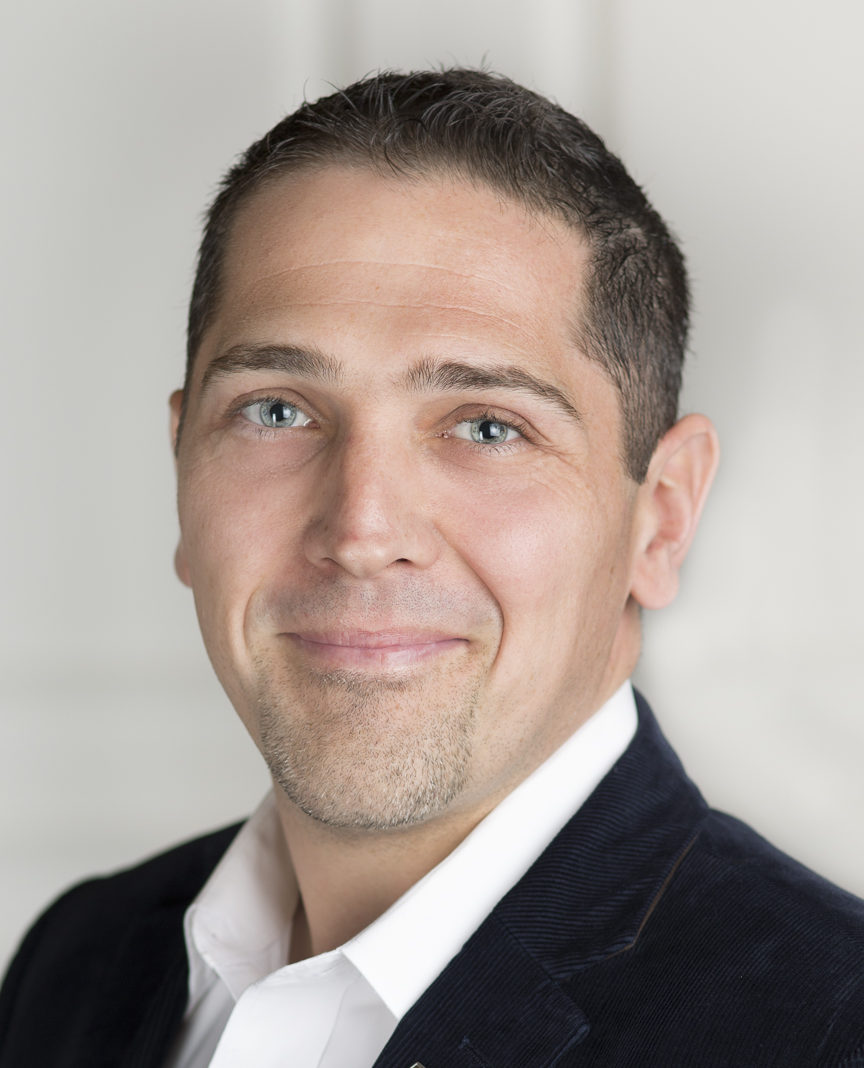 Jesse Vincent-Herscovici, Mitacs
Jesse Vincent-Herscovici, Mitacs
-
“Mitacs’s Future Networks Team (5G, 6G, Next G): Supporting Canadian and Global Research Collaboration between Academia, Industry, and Beyond!“
Bio: Jesse Vincent-Herscovici has been an integral member of the Business Development team at Mitacs since 2009. Since being appointed Vice-President of Business Development in 2017, Jesse has overseen strategy and the creation of countless new partnerships between industry and academia all while scaling the team to over one hundred business development representatives embedded throughout the Canadian innovation ecosystem. He sits on multiple advisory committees and boards, spanning across various sectors.
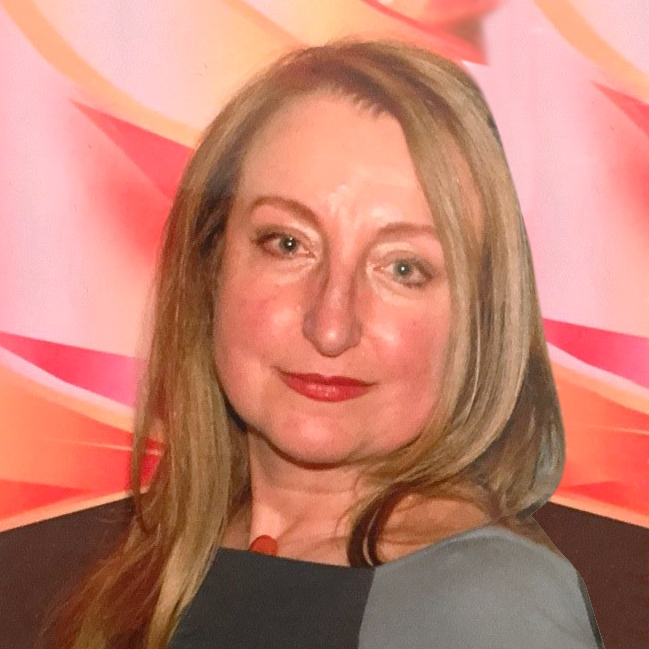 Galina D. Pildush, Palo Alto Networks
Galina D. Pildush, Palo Alto Networks
“IoT Vulnerabilities… To be or not to be”
Bio: Dr. Galina D. Pildush has been active in the computer networking and cyber security industry for more than twenty years. She holds PhD in Organization and Management, specializing in IT, MSc and BSc, both in Computer Science. Over a decade ago, Galina’s passion had expanded into Mobile Network Operator (MNO) infrastructure protection, cloud security, and virtualization. Throughout the years, Galina held various engineering roles, product management & architecture, and strategy & planning with various high-tech companies. Galina has been an active industry standards contributor (3GPP, IETF, ETSI), an author of computer networking books and articles, a blogger, and a frequent speaker/panelist at various security conferences, evangelizing MNOs infrastructure security and services. At Palo Alto Networks, Galina currently holds the role of Global Consulting Engineer, focusing on MNO infrastructures’ security and services.
“Toward end-to-end security and privacy in a NextG”
Abstract: NextG represents both a challenge and an opportunity for security and privacy. On the challenge side of the equation we can anticipate an era of cryptographic turmoil, the convergence of separate industry sectors, and increased risk in the context of ever more ubiquitous wireless sensing, compute, and communications. On the opportunity side of the equation, the NextG ecosystem is well-versed in coordinating large standards-based deployments of emerging technology. Moreover, emerging technologies to support goals for end-to-end trust may become mature in the timeframe of a NextG deployment. This disucssion will outline a subset of potential NextG security and privacy foundations including advances in cryptographic agility, confidential computing, and data use controls.
Bio: Chris Ramming is research director with a passion for bridging theory and practice. He joined VMware to help drive organic innovation and is responsible for the VMware academic research program as well as an incubator that explores disruptive technologies to create new revenue streams for the company. He serves on the CRA Board and is a member of the CRA-Industry steering group; he serves on the DARPA ISAT steering committee and is a former chair; he is also past chair and board member of the UIDP. He has worked with/for several leading research organizations including Intel Labs, DARPA, AT&T Research, and Bell Labs.
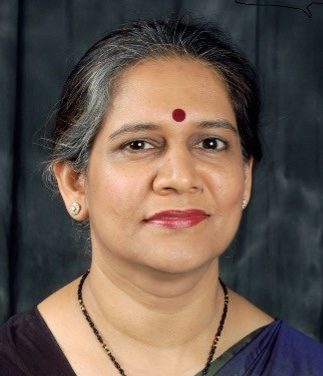 Pamela Kumar, Director General, TSDSI
Pamela Kumar, Director General, TSDSI
“5G and Beyond – Update from India”
Bio: Ms Pamela Kumar is the Director General, Telecommunications Standards Development Society (TSDSI), and Bharti Chair Visiting Professor at UIET Panjab University.
Since her joining at TSDSI as Director General in early 2017, TSDSI has made a mark in the global standards arena – with its contribution of the Low Mobility Large Cell (LMLC) requirement for 5G Rural broadband in ITU and later approval of its Radio Interface Technology (RIT) – 5Gi as an IMT2020 technology standard by the ITU. Other notable accomplishments are adoption of oneM2M as a national standard and formation of 5G High Level Forum.
Pamela has worked at AT&T, Bell Labs, C-DOT, and held leadership positions in Texas Instruments, IBM, Hewlett Packard Enterprise, R&D labs in India. She also did a short stint with 2 startups, setting up the R&D centres of Network Programs and Alliance Semiconductors. She holds 3 Patents granted by USPTO and has 5 patent applications pending in the Networking Accelerators domain. She has been a Keynote/ invited speaker in 90+ Local and Global forums.
Pamela has held various honorary positions – Vice Chair of 3GPP PCG, member of the IEEE-SA Nominations & Appointments Committee, Member at large- IEEE Standards Association Board of Governors, Chair of the IEEE Charles Steinmetz Awards Committee, General Chair of IEEE ANTS Conference & COMSNETS Conference, Coordinator Industry Relations for IEEE Region 10, Chair for IEEE Computer Society Chapter, Vice Chair of IEEE Bangalore section, Founding Chair & President of CCICI etc.
Pamela earned her B.E in Electronics and Electrical Communication from Punjab Engineering College Chandigarh, Master’s degree in Electrical Engineering from Rutgers University, USA and Executive MBA from IIM Bangalore.
She is passionate about the role of technology in driving quality of life and socio-economic development. She firmly believes that national and international collaborations between Industry, Academia and Government are key enablers for sustainable development.
Sign up for email alerts to get the latest news and announcements for the 2022 IEEE Future Networks World Forum. If you have specific questions, contact us at FNWF@ieee.org.






